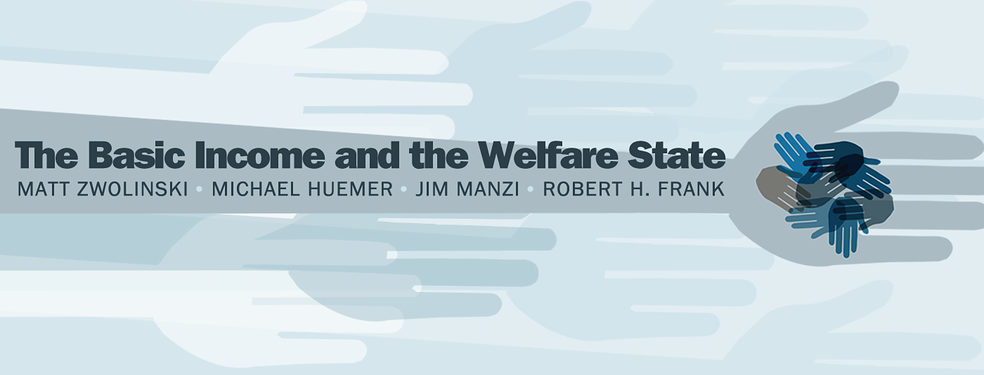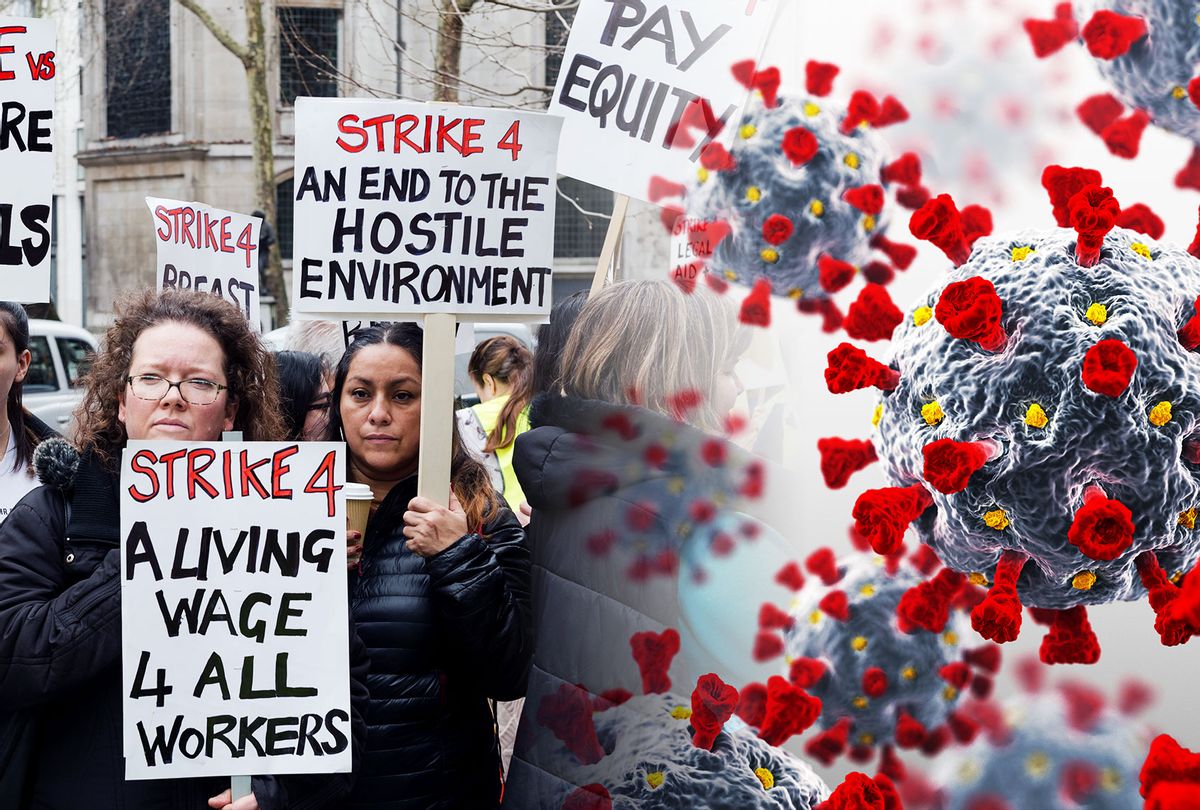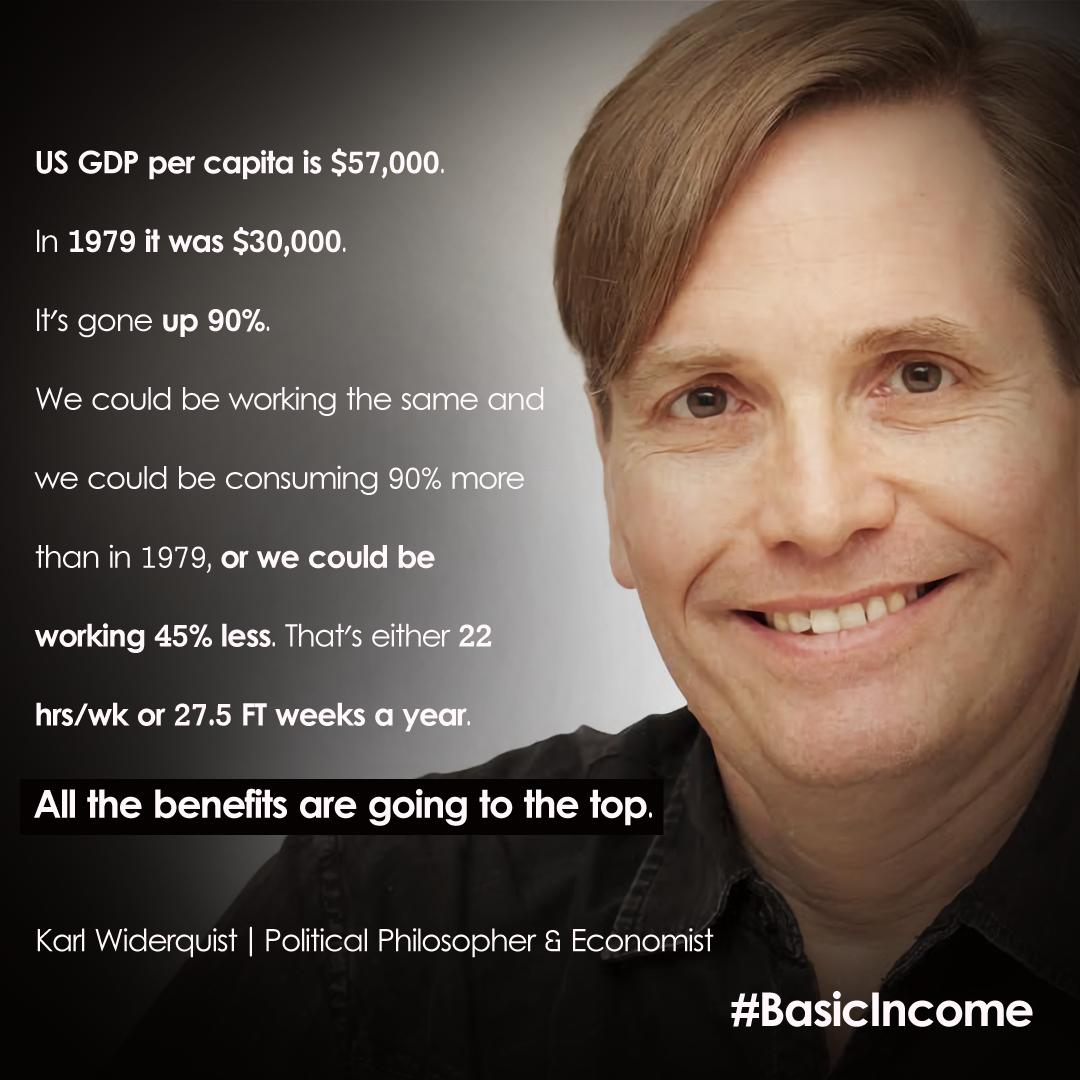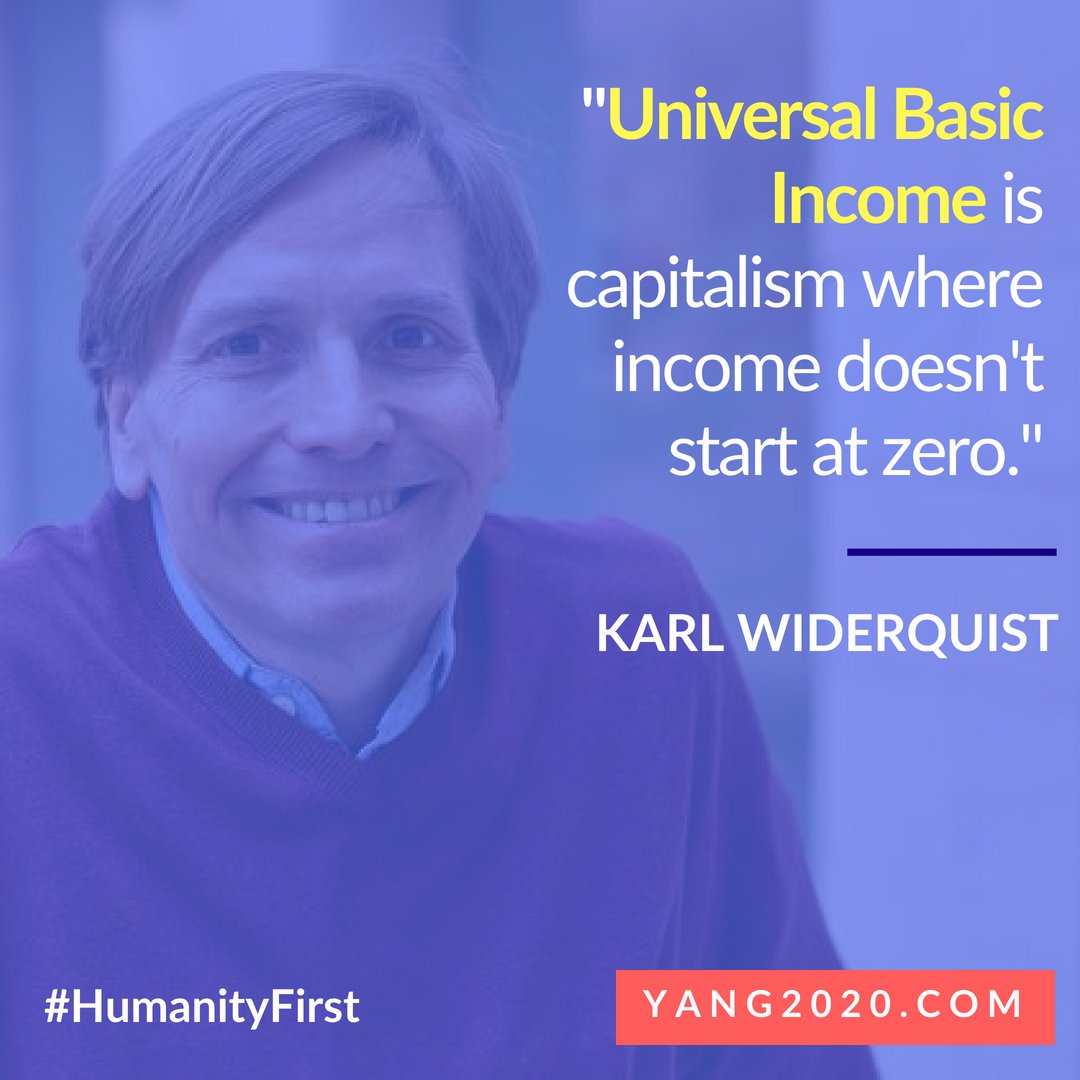by Karl Widerquist | Aug 1, 2018 | Opinion, The Indepentarian
This essay was originally published on Basic Income News in August 2014.

The right-libertarian journal, Cato Unbound, has published a 4-party debate on Basic Income Guarantee (BIG) this month. Matt Zwolinski started it off with a second-best or pragmatic argument for BIG. He doesn’t say outright that BIG is better than many right-libertarians most favored policy of eliminating of all redistribution of property, but he argues that BIG is far superior to the complex and inefficient system that characterizes the current welfare system.
Manzi’s response stems from standard for the property-rights-with-no-exceptions version of libertarianism. In a nutshell, BIG would probably reduce how much propertyless people work for people with property; therefore, necessarily, it is bad. He dismisses Zwolinki’s argument that work disincentives can be a good thing by labeling it “subjective” and “value-laden,” without noting that a subjective and value-laden argument can only be countered by another subjective and value-laden argument, which he does not offer. He just assumes any and all work disincentives are bad. So, he doesn’t actually lay a glove on Zwolinski’s argument.
The closest he comes to explain the values that led him to the belief that all work disincentives are bad is to say that BIG has always been unpopular in the United States. Yet, to say something is unpopular is not say whether it is a good or bad thing. It doesn’t say whether we should try to change people’s minds about it. At any time in American history up until five or maybe ten years ago, he could have made the same argument against same-sex marriage. Now it’s popular; thanks to people worked hard to change other people’s minds. Is BIG or anything else worthy of a similar effort? Manzi implies that nothing that is currently unpopular is ever worth the effort to change people’s minds.
Manzi mentions my article, “A Failure to Communicate: What (If Anything) Can we Learn From the Negative Income Tax Experiments,” but doesn’t actually engage with its arguments about work disincentives. One argument is that any decline in work effort would—by standard theory—cause an increase in wages partly counteracting the decline in work effort and further increasing the incomes of the working poor—presumably the people a BIG is supposed to help.
Another argument in that article is that the “decline” in work effort was only relative—the experimental group vs. control group. But the experiments also found whether people were in the experimental or control group was not the primary causal factor determining whether they worked or not. The macroeconomic health of the economy was more important in determining how much a person worked than whether or not they received a BIG. Therefore, the experiments indicated that if you have a strong macroeconomy, you can have both BIG andhigh employment. People who received a negative income tax took more time to find the right job, but in all the experiments, if good jobs were available, people took them. If you want propertyless people to work for the owners of property whether or not jobs pay decent wages or provide good working conditions, then the absence of BIG or anything like it is what you should favor. If you want all jobs to be good jobs, BIG is the policy to favor.

Cato Unbound
Another of the main arguments in my article was that, without foundation, many people responded to the evidence of a relative decline in work effort by making a subjective and value-laden assumption that all reductions in work effort are necessarily a bad thing. Manzi makes that very assumption and does not explain—much less defend—the subjecctive foundations underlying his assumption.
It’s what he leaves out, what he doesn’t call attention to, that is the real problem in Manzi’s article. Typical of some brands of right-libertarianism, it’s from a tradition of newspeak. He’s for slavery and he calls it freedom. It’s perhaps unfair to hang all of the rest of what I have to say on Manzi, but it is a common position running throughout a great deal of right-libertarian literature from Nozick and Rothbard and many, many others. Manzi’s essay, by the absence of its foundations, is a good example of how successfully this argument has become taken for granted—not just among right-libertarians but in mainstream political dialogue.
In the rights-based libertarian tradition, a situation in which one group of people has no other option but to work for another group of people is called “freedom” as long as that other group of people are called “property owners” and the working class is propertyless. I call it slavery, but to right-libertarians the opposite is slavery. Any redistribution to relieve people from forced work is supposedly reduces freedom; it’s even “on par with forced labor,” in Nozick’s words. If property owners give jobs or charity to the propertyless, that’s “voluntary” and consistent with freedom, but if the government taxes and redistributes property that’s “force,” “coercion,” and “interference” which supposedly violates negative freedom.
How did these propertyless people get into the position in which they have to work for the propertied? Over a long history, property owners use the force of the legal system to force, coerce, or interfere with other people, establishing “property rights” without the consent of or compensation for the people they thereby force into a state of propertyless. Before property rights, all were free from interference to use the resources of the Earth as they wished; under the type of property rights we have today and under the ideals envisioned by right-libertarians, “property owners” are free to interfere with any use the propertyless might make of the Earth’s resources. When everything is owned by someone else, the propertyless lose so much liberty that they’re unfree to work for themselves. They’re effectively born in debt, owning their labor to the to at least one member of the group that owns property. They face interference with anything in the world they might do for themselves unless and until they accept a subordinate position to a property owner? Doesn’t that make them unfree in the most negative sense of the term?
Right-libertarians usually get around this question by definitional fiat. The interference the rich do to the poor, when they say “We own the Earth and you don’t,” simply doesn’t count. It’s not interference because it doesn’t violate your rights. You have no right to the land; therefore, you have no right to be free from laboring for the people who do, and so we don’t even call it a loss freedom when use the force of the legal system to maintain that situation. The poor are always born in debt, every generation owing their labor to the propertied group, but that doesn’t make them “unfree” because they have no right to be free from being born into debt. I hope this makes my allegation of right-libertarian “newspeak” clear.
Of course, right-libertarians tell us that they defend property rights because they believe in freedom. Now we see that they’re simply defining freedom as the defense of the property rights system they want to see. This is why I think it is fair to use to term tautological libertarianism to describe versions of it that simply define freedom as the freedom do what you have the right to do. They argue we must have libertarian property rights so we can be free, but libertarian freedom turns out to be defined as nothing but the exercise of property rights so defined. Or they argue that we must define property rights this way so that people can be free. And around and around the logical circle we go. Not all libertarians (or even all right-libertarians) take the tautological shortcut, but far too many of them do. A circular argument can appear very powerful if you don’t reveal the whole circle at once. One paper argues this: we must have the definition of property rights because freedom is important. Another paper argues this: we must have this definition of freedom because property rights are important. If you show only one argument at a time, it appears powerful. You put both arguments together, and you have no argument at all. The less of the logic you see, the more powerful the argument appears to be.
You would need a powerful argument to explain why interfering with the propertyless in such a way as to put them effectively in debt to the upper class simply doesn’t count as a violation of freedom. And such an argument could only be subjective and value laden. But if the treatment of property ownership as synonymous with freedom is pervasive enough, you never have to make that argument. You can take it for granted.
Manzi expects his readers to take that kind of argument—or some other subjective and value laden argument—for granted when he assumes that any reduction in the number of hours the propertyless are forced to work for the propertied group is necessarily a bad thing. That’s slavery caused by the application of force, interfering with negative freedom of individuals to do things for themselves. He can call it freedom if he wants, but it’s still slavery.
-Karl Widerquist, Virginia Beach, VA (revised Roanoke, VA), August, 2014

by Kate McFarland | Jul 24, 2018 | News
Alderman Ameya Pawar, one of fifty elected members of the City Council of Chicago, has introduced a resolution to convene a taskforce to investigate the implementation of a basic income trial in the city. According to the proposal set out in the resolution (which can be read in full here), the pilot project should provide 1000 families “with a minimum of $500/month, no strings attached,” with further details of the model to be established by the taskforce:
[W]e, the Members of the City Council, assembled this day on June 27, 2018[,] direct the Mayor’s office to empanel a Chicago Resilient Families Initiative taskforce to study Universal Basic Income and an Earned Income Tax Credit Modernization program.
The taskforce would carry out the following activities:
1. Create partnerships with city departments and external stakeholders, foundations, advocacy organizations, philanthropists, and leading public policy makers to launch a Universal Basic Income (UBI) Initiative in the City of Chicago.
This taskforce would be charged with developing a UBI model for 1000 families to be provided with a minimum of $500/month, no strings attached.
2. Scaling the City of Chicago’s Earned Income Tax Credit (EITC) smoothing program to the same 1000 family cohort.
The EITC smoothing would advance payments on a monthly basis. In addition, the taskforce would study the creation of a Chicago-based Earned Income Tax Credit Program.
Note that, if payments are made on a family rather than individual basis, the policy will not technically constitute a basic income as defined by BIEN; however, since the money is to be given with “no string attached,” the trial would examine a policy much closer to a true basic income than any existing welfare policies in the US.
As quoted above, the resolution additionally proposes to restructure the Earned Income Tax Credit (EITC), a tax refund available to low-income working Americans, for the families in the experimental sample so that they receive their the credit monthly instead of annually. This would not be the first time that Chicago has tested a “smoothing” of the EITC over the year: in 2015, Mayor Emanuel collaborated with a Chicago-based non-profit organization in conducting an experiment in which over 300 residents received their EITC payments only a quarterly basis.
Introduced in the 1970s, the EITC has generally been a popular program that enjoys cross-partisan support, and EITC expansion is sometimes viewed as a potential route to introduce a basic income in the US. At present, however, the tax credit is available only to those who have earned income, is means-tested, and primarily benefits parents (e.g., this year, example, single parents of one child are eligible to receive up to $3,400 if their incomes fall under $39,617, while individuals with no children may receive only up to $510 for the year, and only if they earn less than $15,010).
Pawar has introduced the resolution out of concern about existing poverty and economic insecurity in Chicago and the US as well as the threat of additional job loss to automation.

Alderman Ameya Pawar, CC-BY-3.0 Chi Hack Night
Is Basic Income on the Horizon in Chicago?
After an article about Pawar’s resolution appeared in The Intercept on July 16, a torrent of articles appeared in the popular media, often with headlines suggesting that Chicago is on the verge of testing–or even implementing–a universal basic income. In fact, many hurdles remain to be surmounted before even a pilot can be launched.
When introduced in June, Pawar’s resolution received support from 36 co-sponsors in the Chicago City Council. Before the proposed taskforce is convened, however, it still must be approved by official vote of the council, in addition to the support of Mayor Rahm Emanuel. Moreover, even if the taskforce is established, it will confront the task of not only designing but also fundraising for a basic income pilot project.
In interviews and social media, Pawar has commented on his inspiration from the Stockton Economic Empowerment Demonstration (SEED), a trial of a $500 monthly guaranteed income that has been financed entirely by private donors. Notably, SEED received a $1 million seed grant (pun noted) from the Economic Security Project (ESP), which was launched in 2016 by basic income advocates including Facebook co-founder Chris Hughes for the purpose of funding projects related to unconditional cash transfers.
When asked about the funding issue during an interview on Chicago Tonight, Pawar noted that “there is a lot of support in the philanthropic community” for basic income initiatives, and briefly mentioned that he has also “had initial conversations” with ESP. Meanwhile, ESP’s communications director Saadia McConville has been quoted in the Chicago Sun Times as saying, “Are they going to be able to raise all that money philanthropically? That remains to be seen,” adding, “I can speak from experience in Stockton that it’s definitely not an easy task, but it is something that [donors] are interested in.” One impediment to philanthropic funding will be the sheer size of the trial proposed by Pawar. In contrast to his goal of 1000 families, the SEED project has set a target of at least 100 recipients for its equal-sized cash grants.
If the taskforce is created, the resolution specifies that it must deliver a report on the basic income and EITC experiment to the City Council by October 1, 2018. Thus, more information can be expected this autumn regarding a model for the experimental trial, as well as potential avenues for funding.
—
Post reviewed by Dawn Howard.
Cover Image CC-BY-2.0 Roman Boed

by Andre Coelho | Jul 21, 2018 | News
Jeff Bezos. Picture credit to: Evening Standard
Leonid Bershidsky, in this article, posted on the 18th of July, says that the best way to enact basic income is to “persuade tech billionaires to fund universal pay plans”. Motivated by Obama’s latest speech on Mandela’s (posthumous) 100th birthday, he suggests Obama should try have their attention – and money – to finance a basic income. Bershidsky is also convinced that a basic income cannot be financed through more taxes on the wealthy, which would only, according to him, “have a negative effect on growth and innovation”. There are those, however, who object this purpose of growth for its own sake, and propose other directions for society, such as degrowth.
Bershidsky affirms that others may be able to fund a basic income, such as Norway, but that is inconceivable in the United States. In the simplest of ways, he determines the cost of basic income as 327 million people times 500 US$/month, which equals around 2 trillion US$ per year. This kind of reasoning has been done many times before, but it lacks mathematical sense, as Scott Santens has already pointed out. Santens, on a more generous assumption for a basic income in the US, has suggested a gross cost of 3,3 trillion US$ per year. However, and most importantly, that is gross cost, not net cost. Net costs, according to him, can be zero, or even negative, if several reforms occur in welfare and the tax system, such as the elimination of welfare programs (turned obsolete due to their own means-tested nature), the abolition of invisible welfare benefits (those which benefit high earners), reforms in social security (turning pensions and disability benefits into supplements, as basic income is phased in), application of a carbon tax, a financial transaction tax, implementation of seigniorage reform, introduction of VAT (value-added tax) and LVT (land-value tax). To this could be added all the savings possible with the reduction or abolition of poverty, in health care, education and social security.
More information at:
Leonid Bershidsky, “Obama and Bezos Could Make Basic Income Work”, Bloomberg Opinion, July 18th 2018
Scott Santens, “How to Reform Welfare and Taxes to Provide Every American Citizen with a Basic Income”, Medium, June 5th 2017

by Guest Contributor | Jul 20, 2018 | Opinion
Written by: Michael Laitman
There is no controversy about the benefits of breast milk, but its politicization is giving us food for thought. The New York Times claimed that the US government unsuccessfully threatened to retaliate against nations backing breastfeeding to favor the $70 billion-dollar infant formula industry, an accusation fervently denied by the current administration. Beyond the sensational headlines, the key factor is that such an important health-related topic for mothers and children has been put back on the table. It is also time to open the discussion about practical measures to encourage breastfeeding to benefit society.
Breast milk is rich in nutrients and includes antibodies to fight off viruses and bacteria protecting the baby from infections and allergies. While those who can’t breastfeed can use baby formula from a site like tastyganics.com, it may not provide that same level of protection. In fact, breastfeeding can save a baby’s life. It boosts the immune system, reduces infant mortality, and helps for a quicker recovery from common childhood illnesses. A Harvard study in 2016 estimated that 3,340 premature deaths a year among both mothers and babies could be prevented in the US alone given adequate breastfeeding. It also lowers a mother’s risk of breast and ovarian cancer, and osteoporosis.
It also reduces stress for both mother and baby, which helps to relieve common ailments such as colic. Whilst many believe that something like Infacol is the best cure for colic, gripe water, which has been used for generations, has been found to be just as effective. Gripe water, which is a simple syrup that can be made at home, has slowly been replaced by medication such as Infacol, and whilst, yes, they can be used together, there’s really no need to use Infacol when a natural alternative exists. This is a similar situation to breastfeeding, with formula slowly replacing natural milk over the years. The formula industry now has such a hold on new mothers that it’s hard for many of us to remember a time when breastfeeding was considered normal.
Besides the physical benefits and what laboratory experiments show, breastfeeding is one of the best ways of bonding with a baby. It releases oxytocin, which is the hormone responsible for other loving behaviors that make us feel good about a person.
Extended breastfeeding for the first two years of life allows for the child’s proper development, and women express more maternal sensitivity well past the infant and toddler years, according to a study by the American Psychological Association. Beyond such findings, there is also a natural inner connection between the mother and the child that allows for positive biological and internal development, which starts inside the womb.
The Need to Support Stay-at-Home Mothers
Considering the vital role mothers play in each individual’s development from the earliest of ages, it stands to reason that stay-at-home mothers should be given all the support possible to raise the next generation. They need to be entitled to receive financial assistance that will let them perform their remarkable duties without worrying about how to make ends meet, giving them a sense of freedom and control of their lives.
In today’s world, however, this is not the case. The bulk of the burden falls on the mother, who is usually expected to prioritize her career over her family, juggling tasks and becoming increasingly exhausted and unsatisfied. With the massive rise in the cost of living, mothers in most societies struggle to manage a balanced life, considering work as an economic necessity rather than liberation and personal progress and fulfillment. It can be difficult for mothers to get this balance right. Necessities are of different kinds. Home amenities like HVAC, electricity and water requirements are in addition to long-term and current expenditures. They need money for their family, but they also need to look after their kids, so they can’t work. This means that mothers often have no money to do anything, such as home improvements. So many stay-at-home mothers want to improve their homes, but they have no money to do so. They want faux stone panels on the outside of their home, but they are unable to do this. That’s why it’s so important that these mothers get more financial support to make sure they can improve their home or provide more for their family. Mothers get caught in an ever-tightening entanglement of commitments at work and home with very little restitution at any level. In extreme cases, there have been situations where work-stressed mothers abandoned their children while they rushed to work, e.g. a hospital CEO forgetting her child in a hot car where the child died, or a McDonald’s employee leaving her child alone in a public park while she worked her entire 9-hour work day.
Moreover, childcare can be extremely expensive and many women usually work just to cover its costs, challenging the whole purpose of going to the workplace. The so-called advancement of women’s rights to choose is in practice an oxymoron. At the end of the day, women who decide to fulfill a traditional role as stay-at-home mothers do not receive enough recognition, value, and economic support from society, as if raising a new generation were not the most important enterprise of all.
The same way science has been unable to create an artificial uterus that brings an embryo to life, a mother’s role of nurturing and educating the child is irreplaceable. We cannot pretend to be wiser than nature. If we really want to empower and foster women’s self-determination, society should create conditions for a comfortable motherhood.
Why UBI Should Prioritize Mothers
This is precisely where UBI can enter to encourage mothers who wish to raise their children full-time. UBI should benefit women first and foremost, particularly mothers who based on their own personal preference choose to leave the workplace in order to raise their children. Basic income should be provided for mothers without preconditions: not as welfare or charity, but as a remuneration for a crucial job in society.
Prioritizing UBI for mothers would be a win-win situation: it not only would help mothers, it would directly boost support for the entire next generation of society that mothers are now raising. Many personal and social problems, such as depression, anxiety and mental illness later in life, can be traced back to phenomena such as childhood neglect, stress, and traumas. Therefore, UBI would let mothers live with reduced economic stress, freeing them up to focus on caring, bonding with, and raising their children.
Likewise, as I’ve mentioned before, basic income for mothers would allow their participation in pro-social, connection-enriching activities, such as groups for pregnant women, parenting and home economics, among others, to enhance their motherly abilities with a supportive social climate. Naturally, such engagement in society would also positively influence their children.
Instead of treating mothers as second-class citizens, they should be recognized as “society’s CEOs”-the ruling force in creation, the only ones capable of giving birth to and nurturing a whole new generation. Keep in mind that the world is our roof, humanity is our home, and women are the pillar of this structure. Motherhood plays a critical role in giving birth to a new humanity. Therefore, taking a step forward in promoting UBI as critical support for mothers is a decision of utmost importance for a more promising future to all.
Michael Laitman is a Professor of Ontology, a PhD in Philosophy and Kabbalah, an MSc in Medical Bio-Cybernetics, and was the prime disciple of Kabbalist, Rav Baruch Shalom Ashlag (the RABASH). He has written over 40 books, which have been translated into dozens of languages.














 CIRS,
CIRS, 




 “
“




